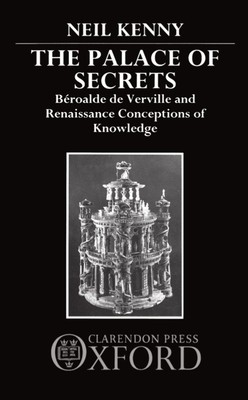
- We will send in 10–14 business days.
- Author: Neil Kenny
- Publisher: Clarendon Press
- ISBN-10: 0198158629
- ISBN-13: 9780198158622
- Format: 14.9 x 22.4 x 2.5 cm, hardcover
- Language: English
- SAVE -10% with code: EXTRA
Reviews
Description
During the Renaissance, different conceptions of knowledge were debated. Dominant among these was encyclopaedism, which treated knowledge as an ordered and unified circle of learning in which branches were logically related to each other. By contrast, writers like Montaigne saw human knowledge as an inherently unsystematic and subjective flux. This study explores the tension between these two views, examining the theories of knowledge, uses of genre, and the role of fiction in philosophical texts. Drawing on examples from sixteenth and seventeenth- century texts, and particularly focusing on the polymath Béroalde de Verville, Kenny provides an in-depth study of the two competing conceptions of knowledge.
EXTRA 10 % discount with code: EXTRA
The promotion ends in 18d.17:48:11
The discount code is valid when purchasing from 10 €. Discounts do not stack.
- Author: Neil Kenny
- Publisher: Clarendon Press
- ISBN-10: 0198158629
- ISBN-13: 9780198158622
- Format: 14.9 x 22.4 x 2.5 cm, hardcover
- Language: English English
During the Renaissance, different conceptions of knowledge were debated. Dominant among these was encyclopaedism, which treated knowledge as an ordered and unified circle of learning in which branches were logically related to each other. By contrast, writers like Montaigne saw human knowledge as an inherently unsystematic and subjective flux. This study explores the tension between these two views, examining the theories of knowledge, uses of genre, and the role of fiction in philosophical texts. Drawing on examples from sixteenth and seventeenth- century texts, and particularly focusing on the polymath Béroalde de Verville, Kenny provides an in-depth study of the two competing conceptions of knowledge.


Reviews